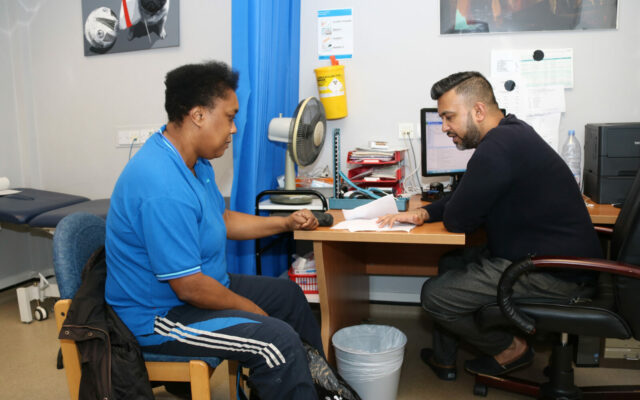Medical assessments are required in certain benefit claims, including for personal independence payments (PIPs). They are also used for the work capability assessment (WCA), which assesses claims for employment and support allowance, and in universal credit where the claimant may have “limited capability for work”.
During the coronavirus crisis, assessments are being carried out only via telephone, with none being done face to face. Video assessments are being trialled. Assessments can also be completed by medical assessors using paperwork alone, such as a claimant’s PIP2 application form or limited capability for work questionnaire, and any medical or other relevant evidence available. It is therefore recommended when starting the written assessment process for PIP or a WCA that clients give the Department of Work and Pensions (DWP) as much information as possible about their disability and its impact, as well as any written evidence.
This may help to avoid the need for a telephone assessment because the medical assessor can make a recommendation to the DWP based on that information and evidence alone.
Limits to work capability assessment
There is an important current feature to note about WCAs. After a claimant has had a telephone or paper-based WCA, the only recommendation that the assessment provider can make is that the claimant is not fit for work and has “limited capability for work-related activity” (LCWRA).
The assessor will not make a recommendation to DWP that the claimant is fit enough to work or that they have “limited capability for work” (ie they are not currently fit for work but should

be able to look to going back to work in the future). If the DWP cannot grant a client LCWRA status, they will get a letter telling them it has not been possible “to complete their assessment” at this time. The client will then have to wait for a face-to-face assessment until such time when these are reintroduced.
If this is the claimant’s first assessment, they will continue to receive the basic assessment rate or, if they are undergoing a review, their award remains unchanged. This does mean clients losing out in the short term if they are likely to see their benefit increased following a face-to-face assessment, although any increase will eventually be backdated.
Some tips for telephone assessments
Many people will welcome and prefer a telephone medical assessment and find this less daunting than attending an assessment centre. However, claimants still need to prepare. Below are some tips for clients on matters to consider before and during a telephone medical assessment. Before:
● Read and review the relevant claim or assessment form (eg PIP2 form or ESA50/UC50 questionnaire) to remind you of points that you may wish to talk about in the assessment
● List all aids and appliances you use, such as modified cutlery, grab rails, a shower seat, incontinence pads, a walking stick or wheelchair, a long cane and low vision aids.
● List all the medication you take or any other treatments you have
● Arrange for a companion to be with you if you want this (see below).
During:
● Make sure you are seated somewhere quiet and comfortable
● Have to hand the application form and any notes you have made
● Note the name of the assessor, the time they called and the call duration
● You can have a companion with you, such as a friend, relative, carer or support worker. They can take part in discussions and take notes for you. Remember to introduce the companion to the assessor. The DWP’s PIP Assessment Guide for Assessment Providers states a claimant has a right to have a companion with them during a PIP assessment. The online WCA assessment provider guidance also acknowledges this right.
● Do not feel rushed to answer questions; take time to consider both the question and your reply
● Do not exaggerate your condition but do not downplay it or minimise its impact on your life
● Do not give “yes” or “no” answers: describe how doing something makes you feel both during and after completing it, what assistance you need, how long it takes and what aids you use
● Talk about how your condition affects you and the kind of things you have difficulty with or cannot do at all without guidance or assistance. This could include difficulties the assessor should but might not raise with you; note that they may assume there are certain things you have no difficulty doing such as mixing with other people.
The pandemic means there will be no face-to-face assessments until it is safe and operationally feasible for providers to reintroduce them. Therefore, we can assume people will have to take part in telephone assessments to determine their disability benefit claims for the foreseeable future and, accordingly, will need support, advice and guidance.





